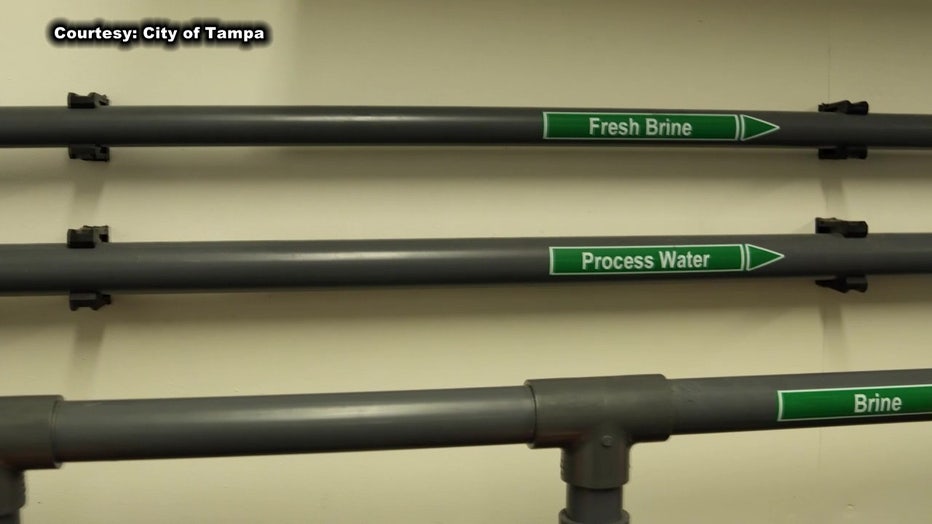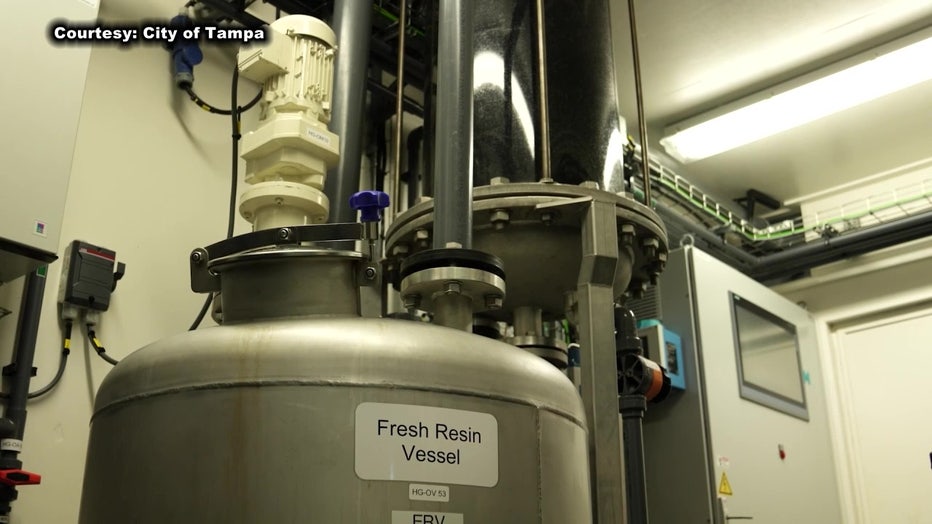Tampa first city in America with new technology that keeps water clean
TAMPA, Fla. - The City of Tampa is hoping to lead the nation in keeping its water clean with the help of new technology.
Suspended Ion Exchange (SIX), is a way of treating water that removes so-called "forever chemicals."
They're often found in products like bowls, cups and straws.
READ: Land O' Lakes property Rosebud Continuum becomes 'recycling utopia'
Scientists call them "PFAS."
"[PFAS] are widely used, long-lasting chemicals that break down very slowly. Many PFAS are found in the blood of people and animals all over the world and are present at low levels in a variety of food products and in the environment," explained the Environmental Protection Agency.
"Now that the EPA is looking at their first ever regulation, we're going to be responsible for removing it. And we are expecting this first regulation to come out in early 2024," said Sarah Burns, the Tampa Water Dept. Capital Improvement Program Director.

And the proposed limits are just four parts per trillion, with one part per trillion being a drop of water in twenty Olympic pools.
Two of the forever chemicals exceed those limits at two of the city's test sites. A press conference was held on Monday, on land in East Tampa that's being planned to be used for the new SIX treatment facility.
READ: 'Straight garbage': What causes your recyclables to head to the trash
"I firmly believe that water is going to be the most precious resource worldwide in very short order," said Mayor Jane Castor. "We have a finite amount, and we have a growing population."
The city argues that utilizing the SIX process will reduce the amount of other chemicals they need to treat water, which they hope will save $1.4 million per year.

Tampa would have the first SIX facility in America and the biggest in the world.
"The eyes not only of the nation but of the world are on these innovative steps that we're taking," said Castor.
One-third of Florida utilities exceed the proposed limits set by the EPA, so this will likely be a project lots of utilities will at least look at.
The city has done a pilot test on wastewater and found it to be very successful.
Construction is scheduled to begin on the new plant in 2028.


